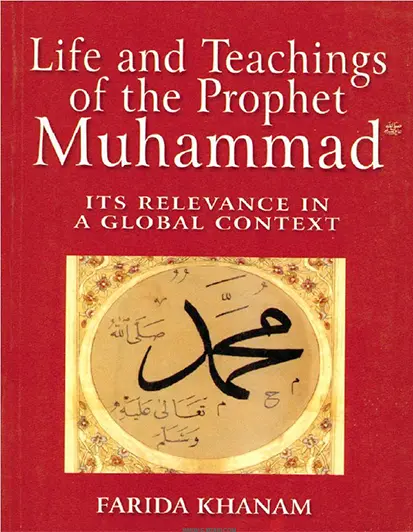Muhammad was the religious, social, and political leader of the Arabs and the founder of Islam. According to Islamic doctrine, he was a prophet who was divinely inspired to preach and confirm the monotheistic teachings of Adam, Abraham, Moses, Jesus, and other prophets. He is believed to be the seal of the prophets in Islam, and his teachings and practices, as well as the Koran, form the basis of Islamic religious belief.
Muhammad was born in Mecca in about 570. He was the son of Abdullah ibn Abd al-Muttalib and Amina bint Wahb. His father Abdullah, son of the Quray shleader Abd al-Muttalib ibn Hashim, died a few months before Muhammad’s birth. His mother, Amina, died when Muhammad was six years old, leaving him an orphan. He was raised by his grandfather Abd al-Muttalib and his paternal uncle Abu Talib.
In later years, he would regularly retreat to a mountain cave named Hira, where he spent several nights in prayer. Around 610A.D., when Muhammad was 40years old, he received a visit from Gabriel in the cave and reported receiving his first revelation from God; in 613, Muhammad began to preach these revelations publicly, stating that “there is only one God” and that complete “submission” (Islam) to God (Allah) was the right way to live (deen), and that he, like other prophets of Islam, was a prophet and messenger of God.
About the Book
There are numerous books on Seerah (the life of the Prophet). These are undoubtedly valuable books in their own right. However, one aspect of the Seerah has not yet been emphasized. That is the relevance of Seerah in the modern world. This is a subject that, although very important, has not yet been dealt with thoroughly enough.
Books written on the subject of seerah have extensively covered miracles, wars, and victories. The emphasis on these matters, while appealing to the conventional mindset, has no appeal to the modern man. These things do not resonate with him. The modern man thinks in terms of science and not in terms of miracles. They think in terms of peace and not in terms of war. He is more interested in solutions to human, social, and economic problems than in statements about political and military conquests. Things become comprehensible to modern man only when they are presented within the framework of reason, not belief.
I have planned my book with this most pressing contemporary demand in mind. Rather than a mere repetition of books already written, I would like to present a book that aims to meet the intellectual demands of our time and focuses on the relevance of the prophet of Islam in the contemporary global context.

